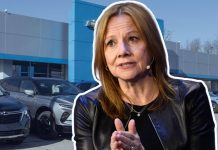Employee satisfaction lies at the core of Continental Automotive Groups success. BY CAROL WHITE
Unlike a lot of second-generation dealers, Will Hardeman and his sister Genny Hardeman had other intentions than joining the family business. After graduating from the University of Texas in economics and Southern Methodist University in finance, respectively, the two set out to carve their own career paths. But after a few jobs and a few bosses in the outside world, the two came home to nest, so to speak, in the dealership group their father, Bryan Hardeman, had built in Austin, Texas.
“It took a few years to realize how great the opportunity is in automotive,” said Will, 33, who is a managing partner, along with Genny, 31, of Continental Automotive Group. Genny’s twin sister, Joy, attended the University of Texas Law School and currently lives in Washington, D.C.
In 1978, Bryan Hardeman, at the age of 29, purchased Continental’s Honda and Mercedes Benz dealerships, making him the youngest authorized dealer for those brands in the country. That same year, he opened Continental Collision Center. Over the years, the group bought and sold several dealerships. Today, it owns four dealerships in Austin – First Texas Honda, Mercedes Benz of Austin, Austin Infiniti and Austin Subaru – along with three collision centers, three wholesale parts distribution centers and its own insurance and in-house marketing agencies. It recently partnered with BMW of Corpus Christi – its first venture outside the Austin city limits in eight years. “We are in full acquisition mode, looking to grow whenever we see a deal that we see value in,” said Will.
In 2001, Bryan Hardeman opened Wholesale Parts Direct, a separate parts distribution center, which sells to independent automotive service shops and handles distribution for almost 70 different manufacturers. “We basically outgrew the dealerships’ parts departments so we moved to a new 50,000-square-foot warehouse,” said Will, explaining that most of the growth is in aftermarket sales. A couple of years later, Continental opened a new 30,000-square-foot, state-of-the-art collision center.
A unique feature of Continental Auto Group is its onsite insurance agency, which not only insures its employees, but also is available to customers and non-customers alike. Since all car buyers are required by law to have auto insurance, it made sense to offer the convenience of that service to its customers. “Some of them need to upgrade their insurance or have different insurance needs on the spot,” said Will. “We’re able to help them out and capitalize on that.” The agency, which provides coverage from multiple top-rated insurance carriers, offers home, commercial and life insurance in addition to auto insurance.
Since joining the family business in 2007, Will has focused on the company’s e-commerce efforts while Genny’s attention has been in F&I practices, procedures and training. According to Will, she’s experienced great success in that area increasing the auto group’s PRU by $250 in about four years. Their father is still active in the company, but most of the day-to-day management is in the hands of the siblings.
Aside from their father’s tutelage, Will and Genny have a vast pool of mentors, many who have been with the company long before they were born, to help them learn the ropes. With more than 500 employees, the average length of employment at the group is an astounding 17 years. Chris Hirsh, for example, service manager for the Mercedes brand joined the company 42 years ago, and Jim Olmstead, president of First Texas Honda, first starting working at Continental in 1969.
There’s a reason Continental Auto Group has landed on the Austin American-Statesman “Best Places to work “ list for four straight years. The secret, according to Will, is his company’s long-standing philosophy of “doing what’s right for the employees, and they will do what’s right for our customers.” That includes offering outstanding benefits, such as 100-percent company-paid medical, life and dental insurance; a matching 401K; an employer-paid onsite wellness clinic; full access to the company’s in-house marketing agency; and an employee vehicle purchase assistance program, to name just a few.
These perks, uncommon in most dealerships, certainly add to the employee-satisfaction index, but the “fun factor” has a lot to do with it. Will gives all the credit to his managers for maintaining a fun atmosphere in the dealerships. For instance, every hour on the hour the product specialists and managers at First Texas Honda drop to the ground to “plank” for 60 seconds, which is a fun team-building and physical activity in which even the customers have been known to participate.
The Honda dealership also boasts a permanent stage in its showroom where the musical members of its staff frequently entertain shoppers. And to attract current and potential customers, the dealership throws elaborate customer-appreciation parties complete with food, fun, music and dancing. Olmstead is no stranger to the stage and is always willing to entertain the crowds at these events, many of which bring in about 700 guests.
“I think having fun at work is one of the foundational pillars of employee satisfaction,” said Will, who added that turnover within the auto group is lower than industry standards. “Enjoyment is directly tied to productivity and success. One thing I always say is ‘if you don’t like doing something, you’re unlikely to work hard enough at it to be successful.’”
Creating an employee-centered culture not only helps the auto group’s retention rates, but it also works in its favor when recruiting new talent. Will’s strategy is to align the company to appeal to the next generation of employees. “If I were starting a career as a salesperson or a service advisor, would I want to come to work here? Would I look forward to coming in everyday and feel good about it?”
The company’s move to a one-price, no-haggle sales process is another factor in the employee happiness quotient. Currently, the Honda store is the only one that has a no-haggle sales process, which was implemented in 2011. “I think that, whether you like it or not, that’s the way the industry is moving. So it’s not a question of if but when (the other stores) will be there,” said Will. “There’s no way to just dabble, or dip your toe in the water with no-haggle selling. You have to go all in and you have to have buy-in from management. They have everything to do with the success or failure of it.”
That’s not to say that First Texas Honda didn’t have its share of pushback when the concept was first introduced. They lost employees who had spent their entire careers perfecting their sales skills and were unwilling to make the transition. That’s the hard part about transitioning your business model, but it has paid off for the dealership, according to Will. “Our product specialists like it because it’s very easy to sell cars, and our customers like it because they realize they’re getting a good deal,” he said, pointing to all the five-star reviews it receives almost daily. “I believe that is the absolute best way to retail automobiles. Our customers love it and our employees love it.”
It may have taken him a few years to appreciate the opportunity within the family business and make the move back to Austin, but it’s one that he says has allowed him to be an integral part of the company’s commitment to its community through its many philanthropic endeavors. “Austin has been a wonderful place to grow up, go to college and do business all in one. We want to support the community that supports us and has made us successful. We want to give back and perpetuate that cycle. That’s what we believe.”








